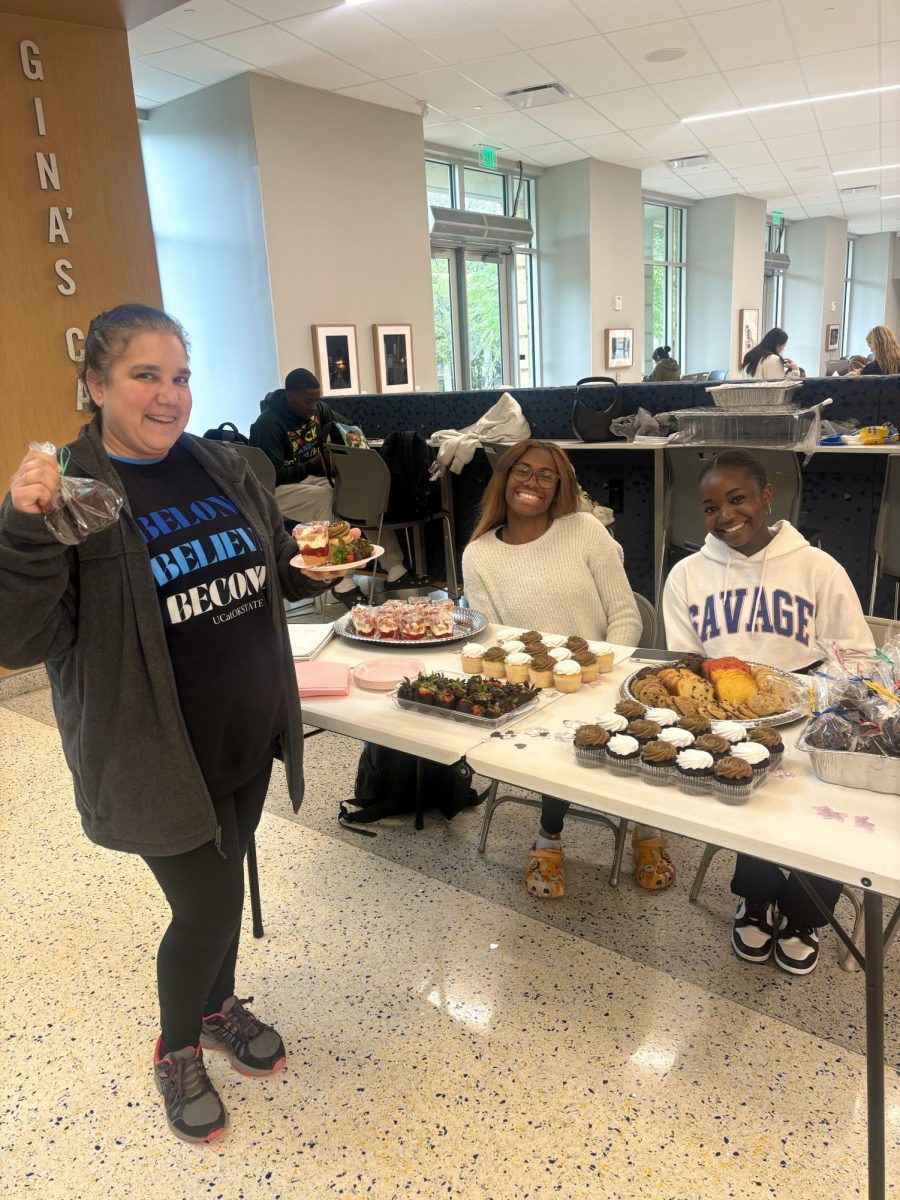Rebekah Charleston has much to celebrate.
Charleston received her bachelor’s degree in Criminal Justice at Texas Wesleyan in December 2016 and her master’s in Criminal Justice from the University of Texas at Arlington in December.
This summer, Charleston will also be celebrating an event that has been 10 years in the making.
The day she got out sex trafficking.
“I wound up running away from home at the age of 17, and I got trafficked for more than 10 years,” Charleston said.
Charleston said she was raised in Keller, where her trafficking began.
“I was traded, and I had multiple traffickers and I was not able to get out until the federal authorities became involved,” she said. “I wound up serving 13 months in federal prison because I was too afraid to tell on my trafficker.”
A crime against humans
Human trafficking is defined as the exploitation of people, according to Felicia Grantham, a program coordinator for the Fort Worth Police Department Criminal Investigations Division/Major Case Human Trafficking.
“Human trafficking is something that has been growing in public awareness recently, but it has been going on for a long time,” Grantham said.
There are different forms of human trafficking, Grantham said. It could be labor trafficking, where someone is exploited as far as their labor, and sex trafficking is when someone is involved in a commercial sex operation.
“For commercial sex trafficking, if someone is under the age of 18, then we don’t have to prove force, fraud or coercion,” Grantham said. “If they are over 18, then we do have to prove that. We also have to prove force, fraud or coercion for labor trafficking as well.”
Human trafficking is happening everywhere, Grantham said.
“It is kind of an equal opportunity employer so there is not any specific demographic which is more apt to be a victim as opposed to somebody else but there are certain things that might make somebody more high risk,” Grantham said.
Most sex trafficking victims are people that have run away from home or who have been through the foster care system.
“Kids that are coming from abusive households and they are trying to get away from that, they fall prey to somebody,” she said.
People often have a misconception of how victims enter sex trafficking, said Detective A. R. White from the FWPD Criminal Investigations Division/Major Case Human Trafficking.
“It is not like the movie ‘Taken,’” White said. “People do get abducted out of their beds at night, but it is not like that.”
Most cases White comes across are where the victim ran away from an abusive home or situation. Another big misconception is the difference between human trafficking and human smuggling.
“A lot of people talk about, ‘Man, this is a hub, because there is I-20, 30, 35, there is a lot of people flowing through here,’” White said. “Well, there is a lot of people flowing through here but that doesn’t mean that people are trafficked more into the city or across the border.”
White said President Donald Trump’s proposed wall will not prevent human trafficking in the United States.
“Human smuggling is a crime against the border and the nation, human trafficking is a crime against a person,” White said.
Grantham said their division sees a lot of sex trafficking domestically.
“A lot of people think trafficking is international, which it is, but there is a lot happening domestically as well,” Grantham said. “You do see a lot of international (people) within the labor trafficking. People getting the promise of a better job and coming over and getting tricked and then having to try to work off your debt.”
Grantham believes human trafficking is growing because it is so profitable.
“As opposed to guns or drugs where you sell something, and you have to get another one to sell again, with humans you can sell them over and over again,” she said.
Human trafficking also has a lower risk of getting caught, Grantham said.
“If you stop somebody in a car and they have all these guns, you can ask questions about that,” she said. “If you have got a person in the car, it is very hard to prove that you have something going on.”
Grantham said signs to look out for if one suspects someone is being trafficked are similar to the signs of domestic abuse.
“If somebody has got unexplained bruising or they are being moved from place to place often, maybe they don’t have a lot of friends or somebody is talking for them,” she said. “Those are all red flags.”
If a child is involved with commercial sex, that is a huge red flag, because they are most likely being trafficked, Grantham said. “If they are an adult and they are involved in prostitution, they have to actually make an outcry saying that they don’t want to be doing it, and that they are being forced to be doing it and if they are being forced to do it than they are being trafficked.”
Tarrant County
Grantham said there is a large amount of human trafficking in Tarrant County.
“If you look at the human trafficking hotline numbers, there does seem to be more in the DFW area and the Houston area than there are in other places,” she said.
Right now, Grantham said, two officers, two detectives and one civilian work on human trafficking for the FWPD. They also work with several agents from Homeland Security Investigations.
White said they could use more people.
“I could say we could double the size of the unit right now or add one more detective and one more officer, easily,” White said.
Grantham said that FWPD’s human trafficking division works with many non-profit advocate agencies in Texas that were picked by Gov. Greg Abbott’s office.
“What they do is provide an advocate of the trafficking victim, which is somebody who comes in like a friend and says, ‘Hey, you can call me any time of day. I am here for you. You can talk to me. I will support you and go to the hospital with you if you have to have an exam. I will go to court with you,’” she said. “They just kind of provide that support, which is huge.”
She also said FWPD is also partnered with the Tarrant County Five Stones Taskforce and more than 45 agencies working to stop human trafficking.
Tarrant’s time to fight
Christie Messenger, an activist who works on human trafficking issues, said she wants to see Tarrant County doing more to fight the crime.
“I would say we have to get tougher,” Messenger said.
Tarrant County has yet to prosecute a human trafficking case, Messenger said.
“That is sending the wrong message. That is telling gentlemen that they can come to Fort Worth, and they can purchase our daughters, our sisters,” Messenger said.
Messenger said she wonders when Tarrant County will treat human trafficking as a violent crime.
“When are we going to prosecute, going to admit it in the city and start developing programs to deter it and prevent it?” Messenger asked.
On hidden blogs and websites that are used for human trafficking, Messenger said, people always warn against going to McLennan County (which includes Waco) because it is easy to get arrested there.
“All of the new pages that have come up, they will say, ‘Do not go to McLennan County. McLennan County will catch you in a heartbeat,’” Messenger said. “When are we going to see it say, ‘Don’t go to Fort Worth. Don’t go to Tarrant County?’”
Charleston said she hopes to see more cases being charged as human trafficking in Tarrant County.
“I think often times, these cases, they know it is trafficking, but they wind up going with different charges because they are easier to prove especially when we are talking about adult women,” Charleston said.
It is much easier to prosecute a case with a minor involved, Charleston said, because the prosecution doesn’t have to prove force, fraud or coercion, but for adults they do.
Charleston said that the Tarrant County Sheriff’s Office is no longer arresting women for prostitution.
“We are starting to get it but just stopping the arrest of women won’t solve the issue,” Charleston said. “We need to go after the demand.”
Valiant Hearts is a non-profit organization that seeks to help victims of human trafficking and work to prevent the crime. Charleston is now Valiant Hearts’ executive director, which she said is a huge honor because the organization helped her when she got out of trafficking.
“We have impacted more than 400 women since our doors opened in 2010,” she said.
Valiant Hearts also reaches out to men that identify as having a sex or porn addiction and want help.
“We also serve families of someone that has been trafficked because obviously what a difficult journey that is on the entire family,” she said.
Human trafficking is an issue that needs to be continued to be talked about, Charleston said.
“Obviously, the truth is, I never woke up one day and said, ‘I want to be a prostitute.’ I never woke up one day and said, ‘I want to take my clothes off for money,’” she said. “Those are things I was forced to do through horrific abuse, threat, fraud and coercion.”
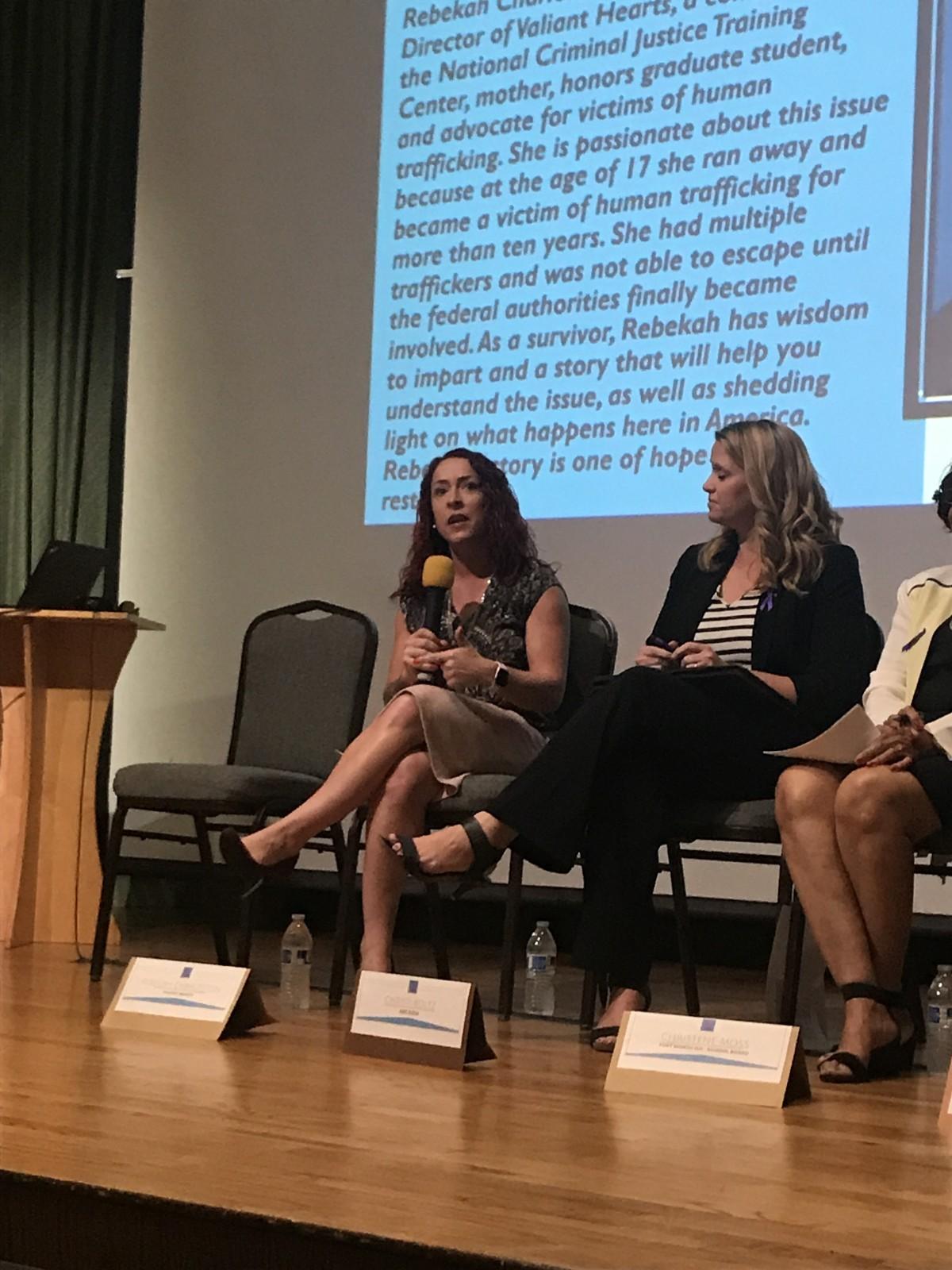
Photo by Hannah Lathen
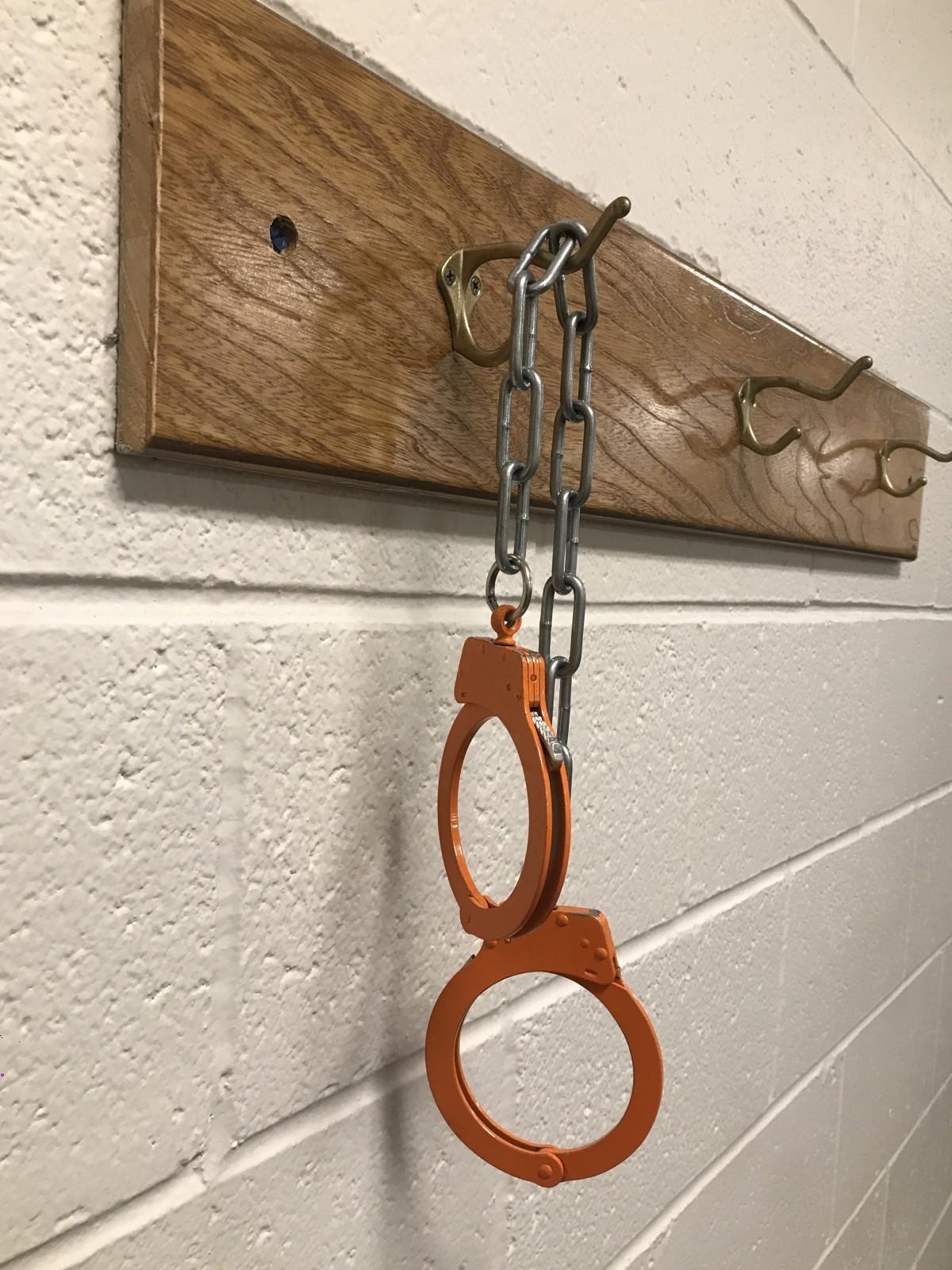
Photo by Hannah Lathen
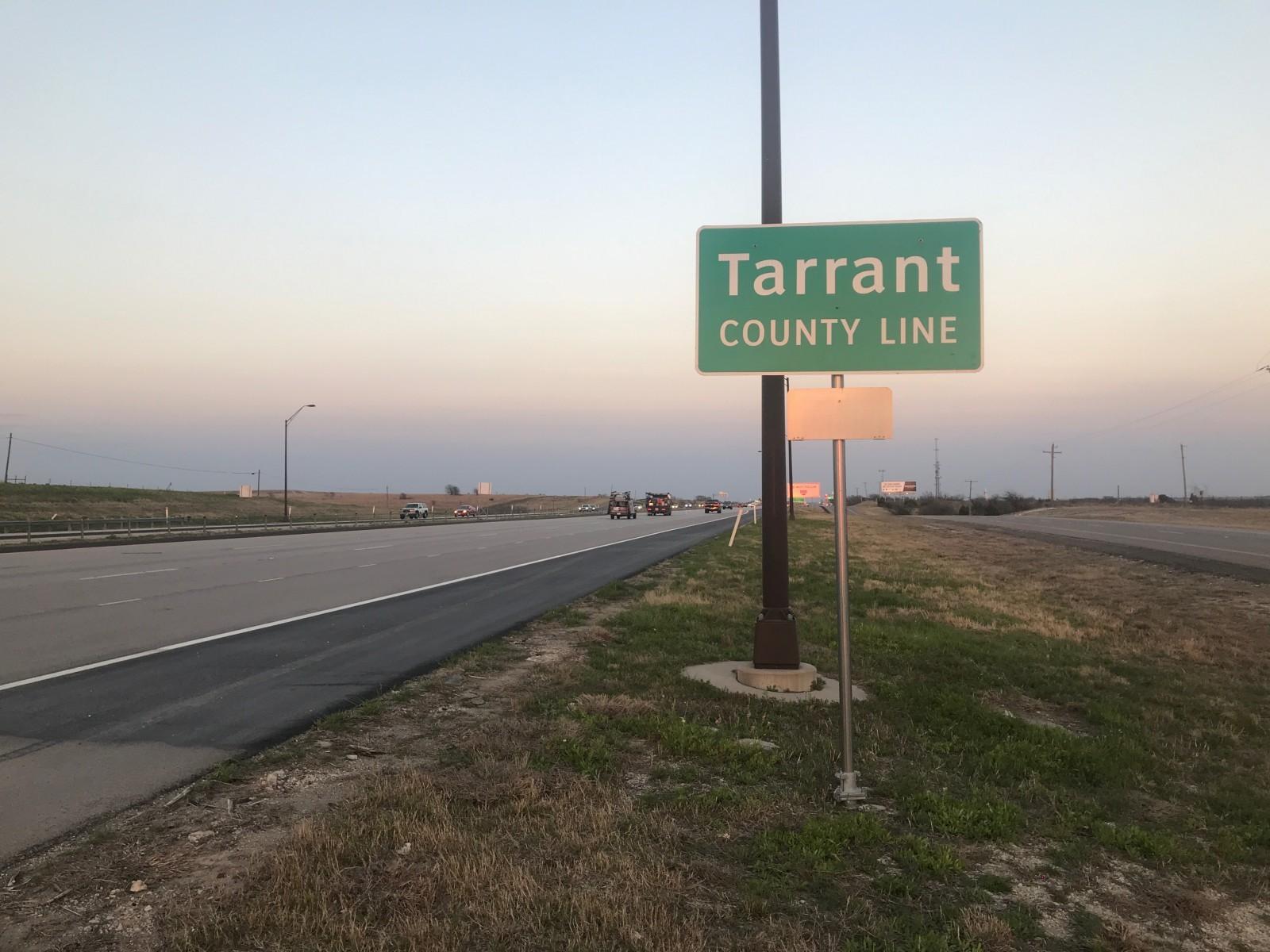
Photo by Hannah Lathen
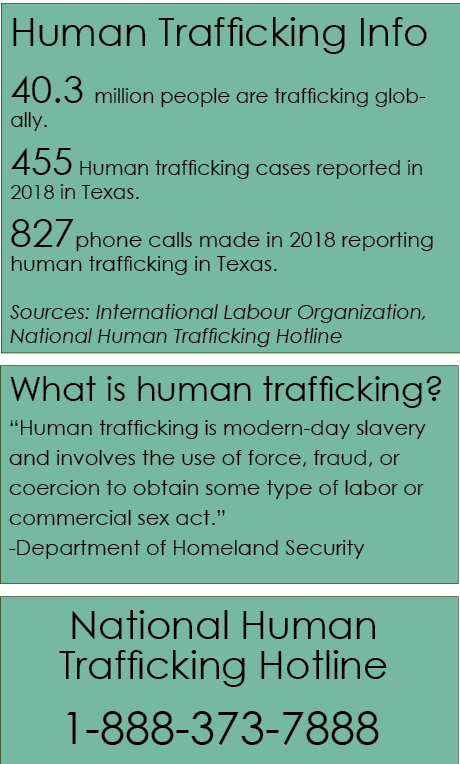
Graphic by Hannah Lathen









![Pippin, played by Hunter Heart, leads a musical number in the second act of the musical. [Photo courtesy Kris Ikejiri]](https://therambler.org/wp-content/uploads/2025/04/Pippin-Review-1200x800.jpg)
![Harriet and Warren, played by Trinity Chenault and Trent Cole, embrace in a hug [Photo courtesy Lauren Hunt]](https://therambler.org/wp-content/uploads/2025/02/lettersfromthelibrary_01-1200x800.jpg)
![Samantha Barragan celebrates following victory in a bout. [Photo courtesy Tu Pha]](https://therambler.org/wp-content/uploads/2025/05/20250504_164435000_iOS-834x1200.jpg)





![Hunter Heart (center), the play's lead, rehearses a scene alongside other student actors. [Photo courtesy Jacob Sanchez]](https://therambler.org/wp-content/uploads/2025/04/thumbnail_IMG_8412-1200x816.jpg)
![Student actors rehearse for Pippin, Theatre Wesleyan's upcoming musical. [Photo courtesy Jacob Rivera-Sanchez]](https://therambler.org/wp-content/uploads/2025/04/Pippin-Preview-1200x739.jpg)
![[Photo courtesy Brooklyn Rowe]](https://therambler.org/wp-content/uploads/2025/05/CMYK_Shaiza_4227-1080x1200.jpg)

![Lady Rams softball wraps up weekend against Nelson Lions with a victory [6 – 1]](https://therambler.org/wp-content/uploads/2025/04/Screenshot-2025-04-04-100924-1200x647.png)
















